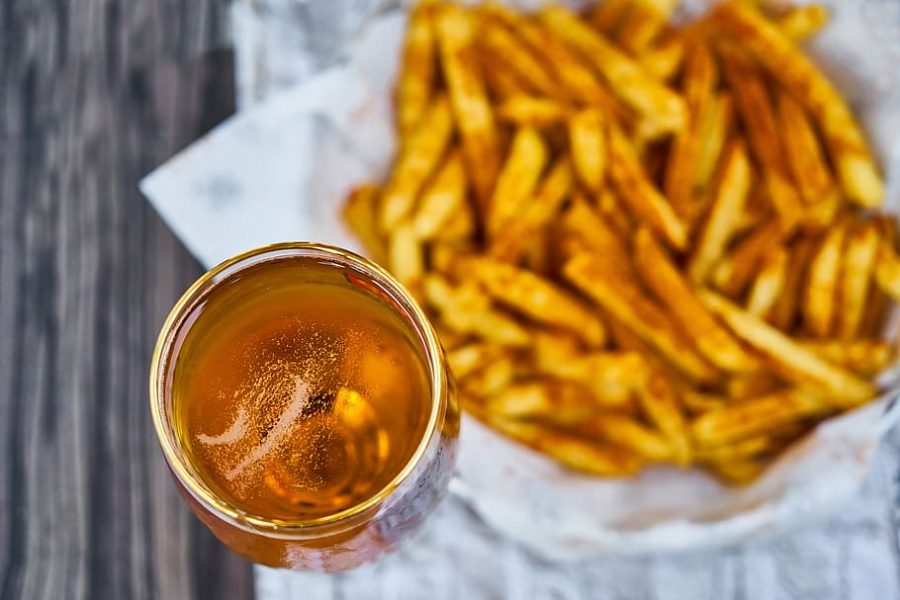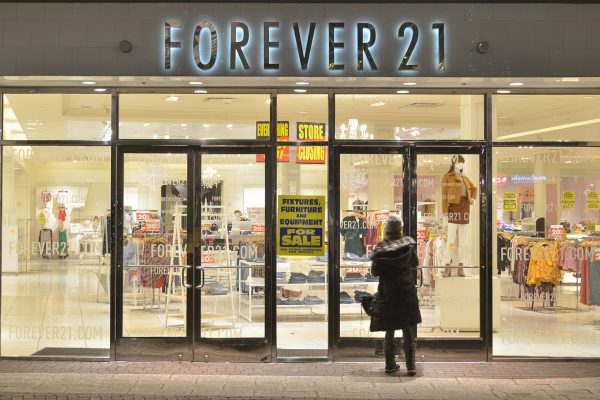Five Junk Foods in Disguise!
Fries with a side of soda.
Salads and fruits may appear to be healthy, but are they as good as they seem? Although “healthy produce” is highly recommended, what is its true nutritional value? Here are five junk foods in disguise!
“Low fat” and “Fat-Free” Foods
It’s a simple fact – foods without fat don’t tend to taste as good. In fact, abundant amounts of sugar and artificial sweeteners are added even to products with these labels to enhance taste that the detraction of fat diminishes. As stated in Healthline, a culinary and fitness magazine, “Food doesn’t taste well when the fat has been removed. That’s why they add a lot of sugar to compensate. Saturated fat is harmless, but added sugar is incredibly harmful when consumed in excess.” What this translates into is substances considered “low-fat” or “fat-free” actually being riddled with high saccharide content, hiding behind the labels of “low-fat” and “fat-free,” when, in reality, they’re quite the opposite.
Turkey Bacon
Probably want to think again if you’re planning to eat turkey bacon. Although an American favorite and a rich breakfast dish, turkey bacon is not a healthy alternative to pork, and in fact, is much worse! According to EatThis, NotThat!, “Choosing turkey bacon may shave a few calories off your meals, but it’s often loaded with artificial colors, sodium, saturated fat, and nitrates, which the International Agency for the Research of Cancer has deemed as possibly carcinogenic.”Carcinogenic substances are cancer-causing, which is why it is pivotal to limit our consumption of such ingredients. In addition, artificial substances may cause digestion problems, combined with obesity caused by high fat and sodium contents.
Sushi
A popular Japanese delicacy! Sorry to break the news, but eating sushi can be unhealthy. Although many restaurants and chefs make sushi consisting primarily of raw fish, rice, veggies, and fruits – all of which have heightened nutritional value – eating just one California Roll is like eating two sandwiches filled with imitation crab. In fact, adding a spicy tuna roll to this dish is like eating half of a tuna sandwich with full-fat mayo. Rice is also refined and extremely high in carbohydrates, with linkage to obesity and chronic disease-contraction. TasteofHome writes, “The mayo-based sauce used to give the spicy tuna roll its heat adds a significant amount of fat to the recipe, as well as making it nearly twice as caloric as a traditional tuna roll.” Rather than divert to this junk food disguised, sushi fans may find solace in a healthy alternative – sticking with sushi wrapped in cucumber or low amounts of rice. Asking for a salad or veggies on the side might help with nutritional balance as well!
Protein Bars
Added sugar is the real foe here. Most protein bars are not healthy because they consist of soy, artificial coloring, and spiking amounts of sodium, sugar, and high fructose corn syrup. And sugar-free and low-carb protein bars are no different. An article from EatThis, NotThat! has stated, “research published in the Yale Journal of Biology and Medicine links the artificial sweeteners used to flavor many low-sugar foods to an increased risk for weight gain and sugar cravings.” Corn syrup can serve detrimental as well, resulting often in lowered metabolism, high triglyceride levels, and type 2 diabetes. Ironically enough, protein bars may be a severe detour on your way to getting in shape!
Salad Dressings
Although these garnishes top one of the world’s most simple, healthy, and balanced meals, salad dressings are filled with substances detrimental to our health. These include many unknown and unhealthy artificial chemicals, sugar, vegetable oils, and trans fats. Harvard Health writes, “Too much saturated fat in your diet may drive up your cholesterol and lead to blockages in arteries.” Along with poor cardiovascular functioning, salad dressings further impact one’s health in an increase of atherosclerotic lesions, which are associated with all kinds of oils and trans fats. Eating salads would be healthy if you weren’t eating it with harmful dressings. Instead of buying these toppings from the store, maybe it’s time to look into making your own!






